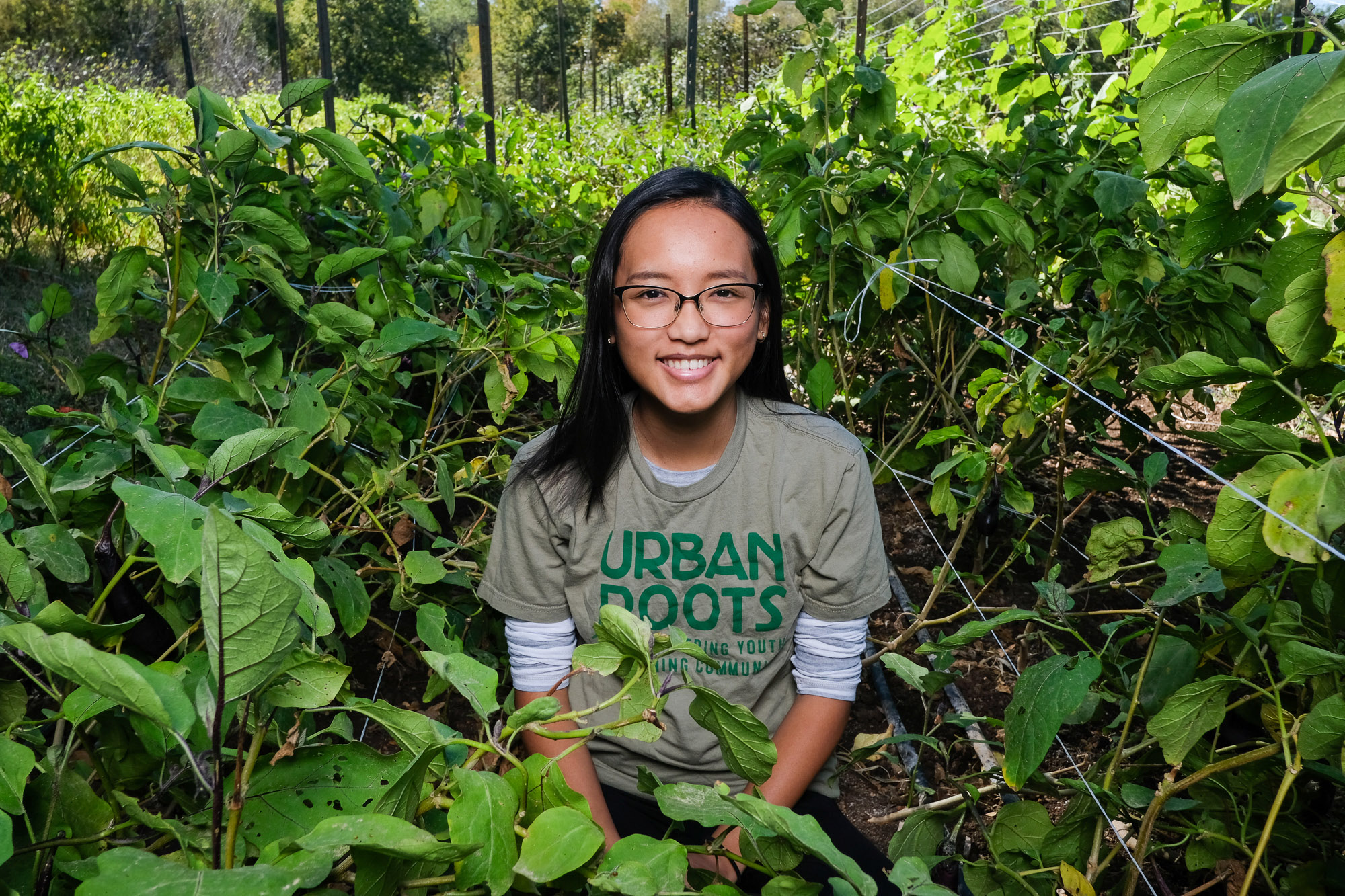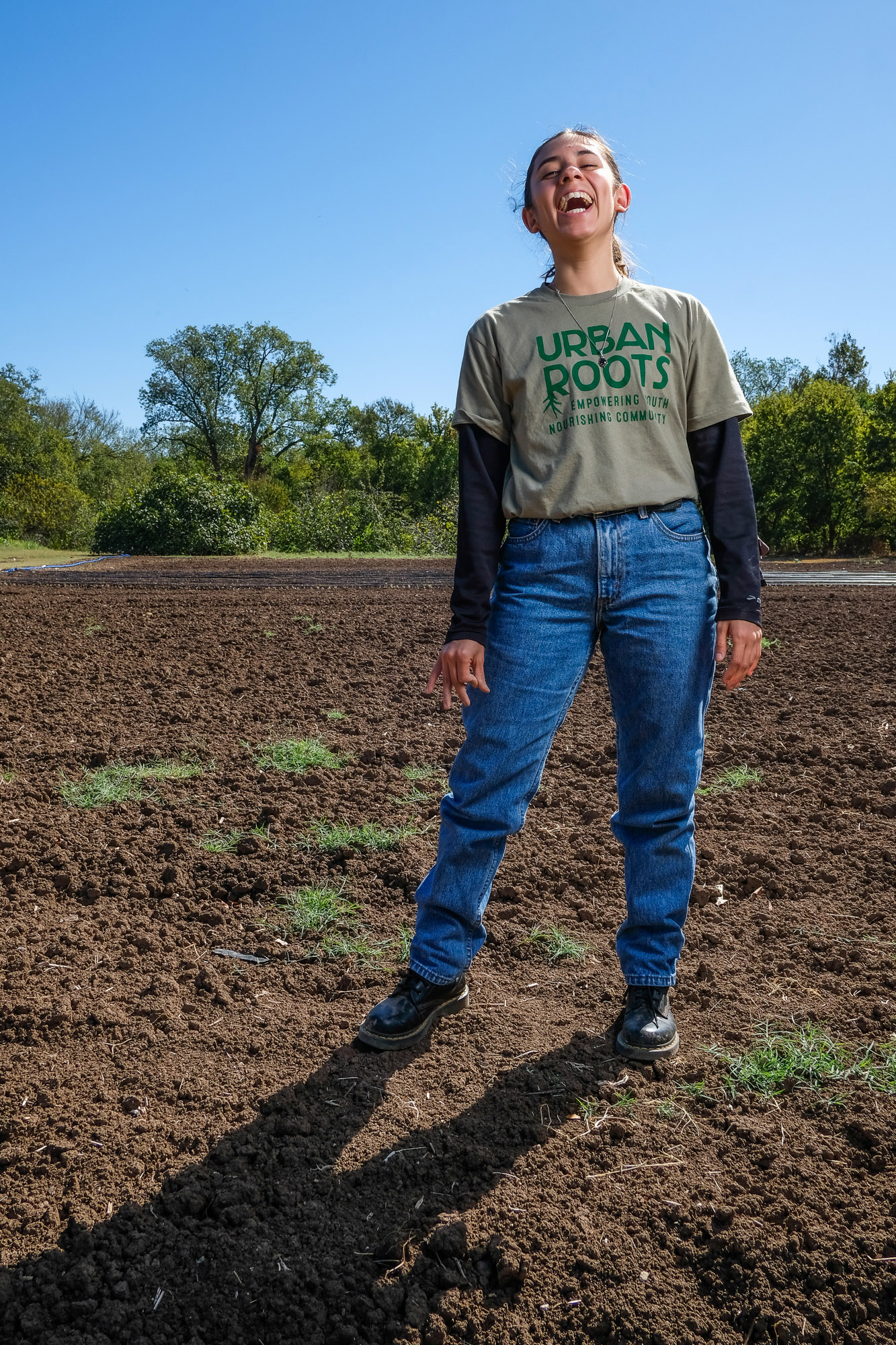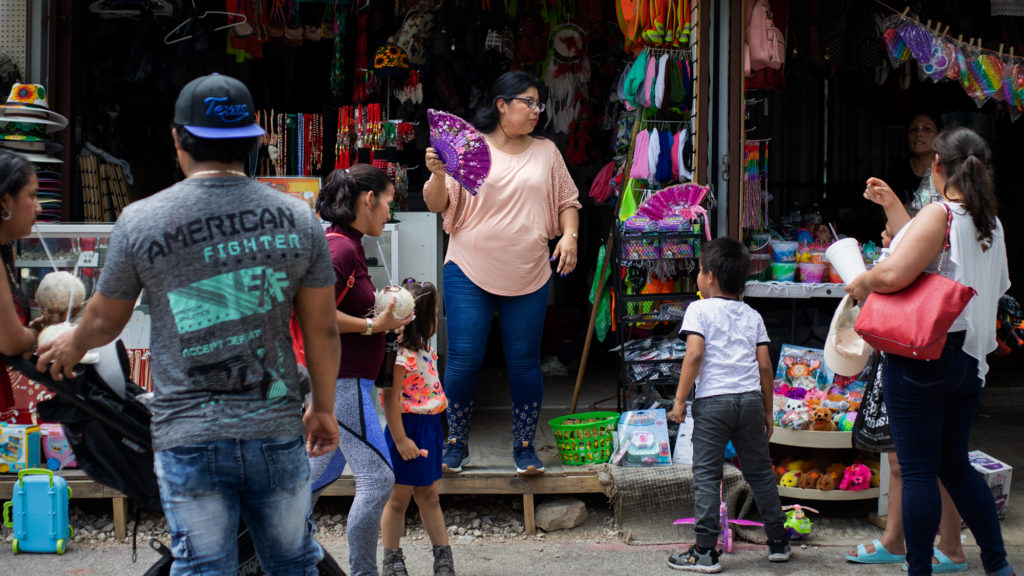Visuals by Kelly West | Story by Omar L. Gallaga
For founder Max Elliott, the success of his nonprofit Urban Roots has been the result of a good idea paired with excellent timing.
In the late 1990s, Elliott was a teacher who felt he didn’t really belong in a classroom. He began an internship at a Colorado farm and caught the bug for farming just as the new food movement was emerging. “The food movement at that particular time was going through a renaissance,” Elliott says. “CSA programs started to take off. People were connecting to food in a new way.”
In 2000, Elliott moved to Austin, Texas, and continued to find purpose working on farms, but he was also searching for a way to bridge his interests in farming and education. Inspired by The Food Project in Boston, he began pitching the idea of a youth farm in Austin that would use gardening as a way to teach young people agriculture skills while allowing them to contribute to their community.
SLIDESHOW: Meet some of the farmers
After a round of focus groups and a search for suitable land in East Austin, the first pilot season began in 2008 with fifteen students. Their first harvest produced 18,000 pounds of produce.
“It rained once a week in the spring,” Elliott says. “It was a really magical season.”
What Elliott didn’t know at the time was how Urban Roots would grow alongside a booming Austin restaurant scene that came to rely increasingly on farm-to-market ingredients, and that farmers’ markets would take off in the city around the same time Urban Roots was getting off the ground.
“We couldn’t have known how perfect the timing was,” he says. “You don’t think of starting a nonprofit in 2008 in the middle of a recession.”
The way the program works is that students apply to work on the Urban Roots farm and, if they are chosen, they are paid for their work. The work is done in cell phone-free zones. “When they are out there, they have to not be engaged in that technology and talk with each other. Our work is really steeped in social and emotional learning,” Elliott says.
Video: A Closer Look at the Farm
Produced in 2017 for Urban Roots
Students such as Corissa Seals, an eighteen-year-old Austin High School senior who started in the program her sophomore year, learn about farming in a way that expands their worldview. Seals says she was mostly interested in studying art and wasn’t an outdoorsy person, or even used to being around bugs, before she joined the program. Now, she says, she finds “it feeds my soul” to participate in a process that benefits her community.
“My motto is basically, ‘Art doesn’t matter if the world becomes uninhabitable,’ so I want to find the balance to make that less likely and still be happy, because I wouldn’t be happy without art,” Seals says.
While Seals wasn’t a complete stranger to healthy eating — “I practically grew up in a Whole Foods,” she says — engaging in the process of growing vegetables herself and getting them to the market opened her eyes. “You see them grow up, you harvest them, but now you see them in people’s hands. I think that’s amazing,” she says.
Thu Nguyen, a 22-year-old Food and Leadership Fellow at Urban Roots, says the experience has taught her to be more thoughtful about where food comes from and how it gets to those in need.
“A lot of times, we forget that there’s this big process that gets our food to our table, and we don’t really think about the people affected by it,” she says. “And once I started thinking about it, it made me really passionate and interested to learn more.”
About 40 percent of the food grown — about 25,000 pounds a year — is donated to local food banks and soup kitchens, and the rest is sold at Austin’s downtown farmer’s market and through the nonprofit’s CSA program.
In selling the produce, students also pick up skills interacting with customers, learning leadership and management skills, and getting comfortable with public speaking.
The program can also change students’ and mentors’ relationships to food. Gabriela Razo, a 21-year-old member of Urban Roots’ Food and Leadership Fellows, says she’d never done any farming before she became involved with the organization. But the time and space to work on the farm has given her a better connection to her own thoughts and feelings, and it’s helped her make more deliberate choices about what she eats.
“I feel like our food is so important,” Razo says. “It’s what fuels you. When I eat good foods, when I eat vegetables, fruits, grains, I can tell the difference in how I feel, my energy level.”
Urban Roots hosts about 1,500 to 1,700 volunteers a year in addition to its 100 paid interns.
Work on the farm isn’t easy. Elliott says farming can be very tough in this region. “Austin is a really hard place to grow food. It’s not easy with the intensity of the heat. It just makes the farming season that much more challenging. But it’s good for team building,” he says.
The organization hopes to expand; it’s currently working with the City of Austin to secure a second farm, one that’s not on a flood plain, and one that would serve to diversify the program’s offerings. The goal, Elliott says, would be to better serve Austin’s income equality problems and to be more responsive to community needs.
“I think in the next five to ten years, as fast as Austin is growing, we need to really ensure people have access to healthy and affordable food,” he says. “We hope this youth-led community farm can be a really dynamic way to bring community members into this food movement.”







